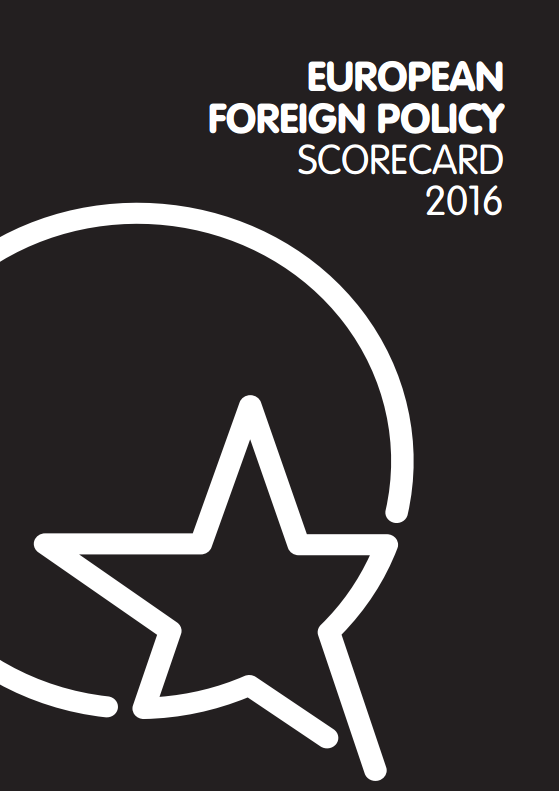European Foreign Policy Scorecard 2016
The sixth ECFR Foreign Policy Scorecard highlights the EU’s diminishing ability to influence its neighbours, and the neighbourhood’s growing impact on the EU
Over the last five years, ECFR’s annual Scorecard has tracked the European Union’s diminishing ability to influence its neighbours. In 2015, the story became one of their growing impact on the EU.
As refugee numbers spiralled through late summer and autumn, and Islamic State (ISIS)-coordinated terror attacks hit Paris and put Brussels on lockdown, Copenhagen, and Brussels, the conflicts around Europe burned the continent’s political elites and instilled fear in its societies. The arrival of over one million migrants created a dilemma in which the humanitarian obligation to give shelter to refugees is pitted against the limited capacities of EU states, both those on the geographical frontline – the external border – and those where large numbers of refugees want to settle.
The EU’s impotence in the face of instability outside its borders provided a reminder of the necessity – and the difficulty – of shaping a long-term, coherent, and strategic foreign policy to limit the impact of this turbulence at home.
You can read the entire European Foreign Policy Scorecard 2016 online here
The European Council on Foreign Relations does not take collective positions. ECFR publications only represent the views of their individual authors.



